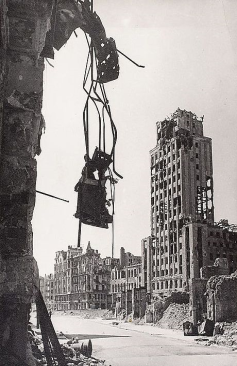The International Crime of Aggression
By Kurt Willems
Published on October 18, 2011

The Review Conference of the Rome Statute was held in Kampala, Uganda, from May 31 to June 11, 2010. The conference was the first time that the Assembly of State Parties (ASP) to the International Criminal Court (ICC) could consider amendments to the Rome Statute. The most prominent item on the agenda was whether to adopt a definition of the crime of aggression, which it did by “consensus” on June 11. Noah Weisbord, one of the experts that helped draft a definition of the crime, said in advance of the ASP adopting the resolution, it “would be a game-changer in international diplomacy.” The Rome Statute currently gives the ICC jurisdiction over the crimes of genocide, crimes against humanity, and war crimes. Despite not being a party to the treaty, the United States sent a delegation to Kampala to observe.
The road to criminalizing aggression has been a bumpy one. The Rome Statute, the treaty which created the ICC, failed to include a definition of the crime when the treaty was adopted at the Diplomatic Conference held in Rome in July of 1998. Among the chief opponents of giving the ICC jurisdiction over aggression were the United States and the United Kingdom, likely due to fears that any criminalization of such acts may deter their respective military and humanitarian interventions in future world crises. Thus, Article 5 of the Rome Statute listed the crime of aggression with the caveat, “The Court shall exercise jurisdiction over the crime of aggression once a provision is adopted in accordance with articles 121 and 123.” Article 121 delayed the adoption of amendments until seven years after the ratification of the Rome Statute. Since the Statute was ratified on July 1, 2002, the Kampala Conference held this year was the first of its kind.
The definition of the crime of aggression is largely based on the United Nations General Assembly resolution 3314 (XXIX) of December 14, 1974. Aggression is defined as “the planning, preparation, initiation or execution, by a person in a position effectively to exercise control over or to direct the political or military action of a State, of an act of aggression which, by its character, gravity and scale, constitutes a manifest violation of the Charter of the United Nations.” The amendment further defines the crime as “the use of armed force by a State against the sovereignty, territorial integrity or political independence of another State” and lists acts that would “qualify as an act of aggression.” Such examples include: an “invasion or attack by armed forces of a State of the territory of another State;” “bombardment[s] by the armed forces of a State against the territory of another State;” and “blockade[s] of the ports or coasts of a State by the armed forces of another State.”
Jurisdiction over the crime is not granted until the ASP adopts this amendment by a decision not to be made until “after January 1, 2017.” Even once that happens “The Court may exercise jurisdiction only with respect to crimes of aggression committed one year after the ratification or acceptance of the amendment by thirty State Parties.” This delay allows for international diplomatic preparation and supports the “principle of legality,” that a person must know (actually or constructively) that his or her acts constitute a crime at the time when said acts are committed.
The jurisdictional trigger over the crime of aggression differs from the other crimes under the ICC’s purview. If the ICC prosecutor “concludes that there is a reasonable basis” to investigate, he must first “ascertain whether the Security Council has made a determination” that a crime of aggression occurred and notify the Secretary-General of the United Nations of his inquiry. If the “Security Council has made such a determination” then he “may proceed with the investigation.” If no determination has been made by the Security Council “within six months after the date of notification,” then the prosecutor can investigate the crime but only with the ICC Pre-Trial Division’s prior authorization.
The Review Conference’s resolution ensured that there would be codified safeguards for states by limiting the jurisdictional reach of the ICC over acts of aggression. First, a State Party may exempt itself from jurisdiction if it “has previously declared that it does not accept such jurisdiction by lodging a declaration with the Registrar” of the ICC. Second, the Court “shall not exercise its jurisdiction over” those states which are not parties to the Rome Statute. However, if the Security Council refers a crime of aggression to the ICC then “the Court shall exercise jurisdiction over the crime of aggression . . . irrespective of whether the State concerned has accepted the Court’s jurisdiction in this regard.”
The adoption of this international crime is a historic movement toward peace and stability in the world. The ASP, in advance of defining aggression, acknowledged in the Kampala Declaration, that they were “convinced” that there can be no lasting peace without justice and that peace and justice are thus complementary requirements.” Whether there exists a positive correlation between justice and peace will be made known to the world in the years to come.

The Author
Kurt Willems is a criminal defense attorney in North Carolina and served on the staff of the NC Racial Justice Act study.
Article picture: Ruined Napoleon Square in Warsaw with Prudential edifice by Tadeusz Cyprian. Source: Wikipedia. Couleur via Pixabay


